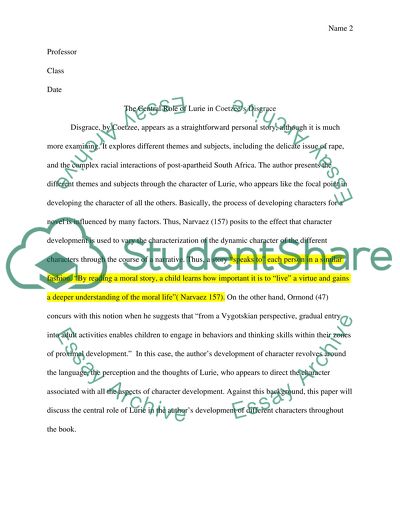The Central Role of Lurie in Coetzees Disgrace Essay. Retrieved from https://studentshare.org/english/1608186-the-central-role-of-lurie-in-coetzees-disgrace
The Central Role of Lurie in Coetzees Disgrace Essay. https://studentshare.org/english/1608186-the-central-role-of-lurie-in-coetzees-disgrace.


